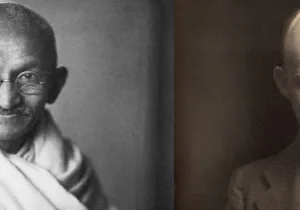Christian Realism is our theme at Providence, and Christian Realism was the theme of George Washington’s life that America celebrates with today’s federal holiday, which according to federal statue specifically honors his birthday, not the “presidents.”
Washington was compelled by circumstance to become a revolutionary but unlike many if not most revolutionaries in history he was not an idealist or a utopian. He had few if any illusions about human nature. He expected people largely to follow their perceived self-interests. From deep personal experience he knew people were not just fallen but also often depraved, wicked and murderous.
A son of Tidewater Virginia where the Church of England was the established and default church, Washington was raised on the Bible, the Anglican liturgy, the Book of Common Prayer, and Anglican devotional material. The earliest book he’s recorded to have read is a defense of Christian orthodoxy written by an English bishop.
Washington’s personal religious beliefs are debated. He left no detailed theological treatise. But his Anglican upbringing immersed him in the language of human sin and frailty. The Eucharistic liturgy would routinely remind him that “we are not worthy to gather the crumbs under Thy table.” From his earliest youth Washington additionally would’ve been disabused of any false expectations about humanity.
His father having died young, Washington was forced early to enter the harsh reality of survival in colonial Virginia. The family farm overlooked the seaport of Fredericksburg, where he was exposed to the cosmopolitan drama and hard dealing of international trade, merchants and sailors. He become a teenager surveyor, traversing the frontier, contending with self-seeking settlers and residing in dingy taverns full of every form of riffraff.
In his early 20s Washington plunged into global statecraft when Virginia’s governor dispatched him to inform the French they must leave what’s now western Pennsylvania. The older French officers were polite and sly. Soon after young Washington was leading troops against the French and their Indian allies. In his first military encounter an Indian ally tomahawked a French prisoner in front of Washington. Later Washington was forced to surrender to the French, and later still he experienced the murderous ambush of Braddock’s March.
In the Virginia legislature, in the Continental Congress and in his dealings with British merchants and officials Washington saw human nature unvarnished. Seven years of the Revolution with all its sufferings, disappointments and betrayals would have only reinforced this perspective. Even in victory the new country seemed determined to war against itself.
Slavery further reinforced Washington’s hard realism. Unlike others, he as a slave owner never glorified it. He realized it was oppressive to slaves and corrupting to owners. And he realized the enslaved were by nature no different from the enslaver. All were responding to circumstances by seeking survival and advantage.
Yet Washington was a Christian Realist and not a despairing or a cynical realist. He affirmed there was an underlying providential moral universe and purpose for fallen humanity. He strove to abide by it and to inspire others to recognize it. He urged respect for captured prisoners. He honored lawful civilian rule. He voluntarily retired from the army rather than seek power for himself.
Washington urged and presided over the creation of a Constitution that summoned all persons to lawful liberty but placed full trust in nobody. He modeled the presidency as an office of political restraint. He governed knowing that violent force was necessary to suppress disorder and deter foreign aggression, but the authority to wield such force must be carefully stewarded. He again left office willingly and abjured personality cult and permanent power for himself.
As a Christian Realist, Washington importantly had few illusions about his own nature. He was not above venality and narrow self-interest. He struggled to rise above it but knew his own limitations. He profited from slavery but also knew it was unjust. He pondered how to free his slaves without exposing them to greater injustice. His will stipulating their freedom deploys sufficient precision to prevent prevarication by his heirs, whom he may have loved but knew they too like everybody were self-interested and corruptible.
During the Revolution Washington told Congress: “Three things prompt men to a regular discharge of their duty in time of action: natural bravery, hope of reward, and fear of punishment.” This perspective maybe embodied his outlook. People can rise above themselves and do good, but they need encouragements and inducements. Successful social harmony requires understanding true human nature and not expecting too much nor too little.
Through all the muck of human chicanery, Washington trusted in a supreme and just ultimate judgment, however mysterious, saying with a confident hope: “The ways of Providence being inscrutable, and the justice of it not to be scanned by the shallow eye of humanity, nor to be counteracted by the utmost efforts of human power or wisdom, resignation, and as far as the strength of our reason and religion can carry us, a cheerful acquiescence to the Divine Will, is what we are to aim.”
Perhaps St Augustine and Reinhold Niebuhr could not have articulated Christian Realism any better.







 Sponsor a student for Christianity & National Security 2024
Sponsor a student for Christianity & National Security 2024